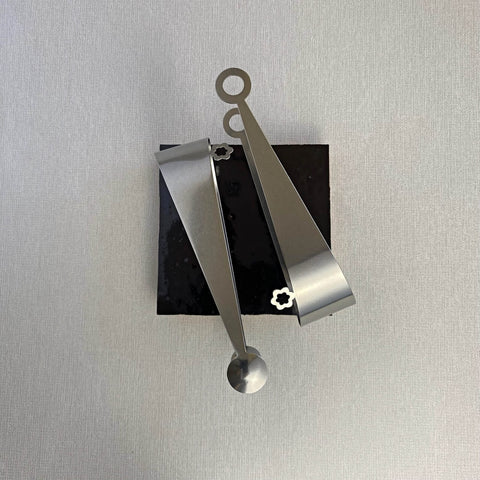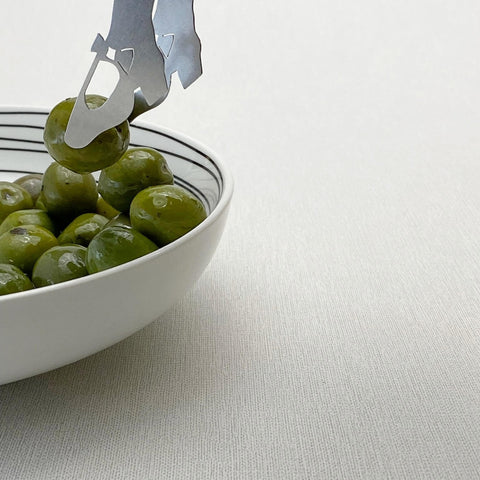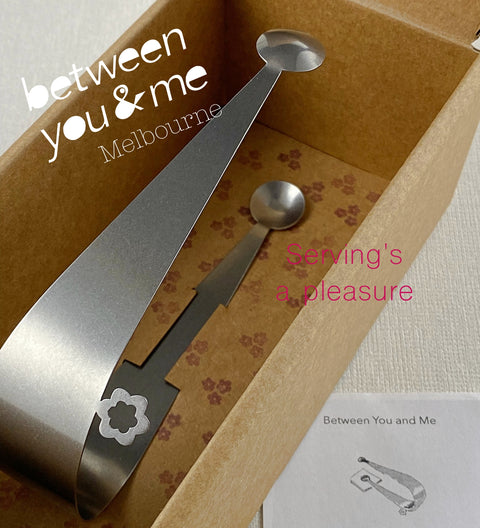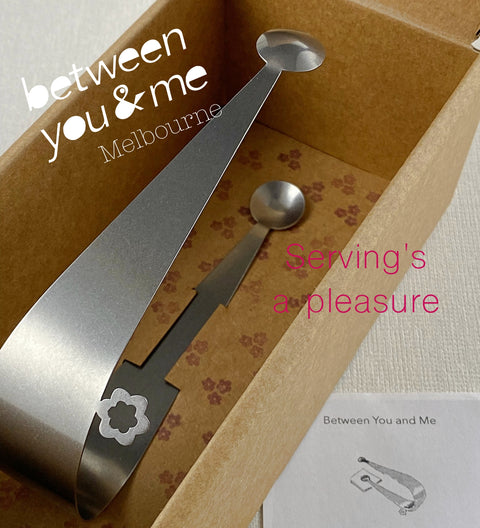There is something entertaining in using tongs. Something which satisfies.
While a fork stabs, a spoon lifts, a knife cuts- the tong is more sophisticated. The tong opens and closes, like a mouth.
That which bites.
The movement of tongs: like a puppet, like talking, like a mouth.
What I like is how words come about. From something so literal. The tongs bite the food. They mimic us.
Tongs are often communal. They suggest a communal plate, from which food will be shared out for everyone.
Tongs are sculptural, they are musical, like maracas.
You could never stab someone with a tong, but you might snap at them, or grab their nose. What could be more communal than that?
Versions of the fork, knife and the spoon can be found in nature. But tongs suggest working with fire.
The Pirkei Avot, a classical text of the third century C.E, relates that the first pair of tongs was created by God just before God rested on the Seventh Day, after creating the whole world.
Apparently God did this because blacksmiths would surely need a a pair of tongs in order to fashion a new pair of tongs.
Just like the chicken or the egg question.
Clearly, one needed tongs to make tongs!
There are of course other theories that the Egyptians invented tongs around 1450 BC, to rotate food being cooked over fire.
And then an American named Murray H Franklin gained a patent for tongs in 1956. A good money making opportunity for Murray, as this was an apparent oversight by both God and the Egyptians.
I find myself appreciative of what it is to have a tool that mimics us. The tongs do the simple act of ‘biting’ in order to carry the food we want over onto our plate. A clear task, done well.
We are in a complex time where AI does all sorts of amazing feats. Technology smiles, and steers, quietly and consistently gathering data. It too has the increasing ability to mimic us. No snapping, no biting though. We are warned not to believe our eyes and our ears.
I cannot imagine that AI will outperform the tong anytime soon, in the satisfying task that it does so well.
You know where you stand with a tong, and these days knowing where you stand with anything, is pleasure.
The simplicity of open, closed.
Open, closed, open, closed.
And that is the tong, it is either open or it is closed.
Mechanical, and rewarding. That which bites.
The sound of the word tong is like a dull bell. It has an echo. It clangs. Whatever you do, don't repeat the word too many times, for it may drive you mad…

Thankyou for reading!








